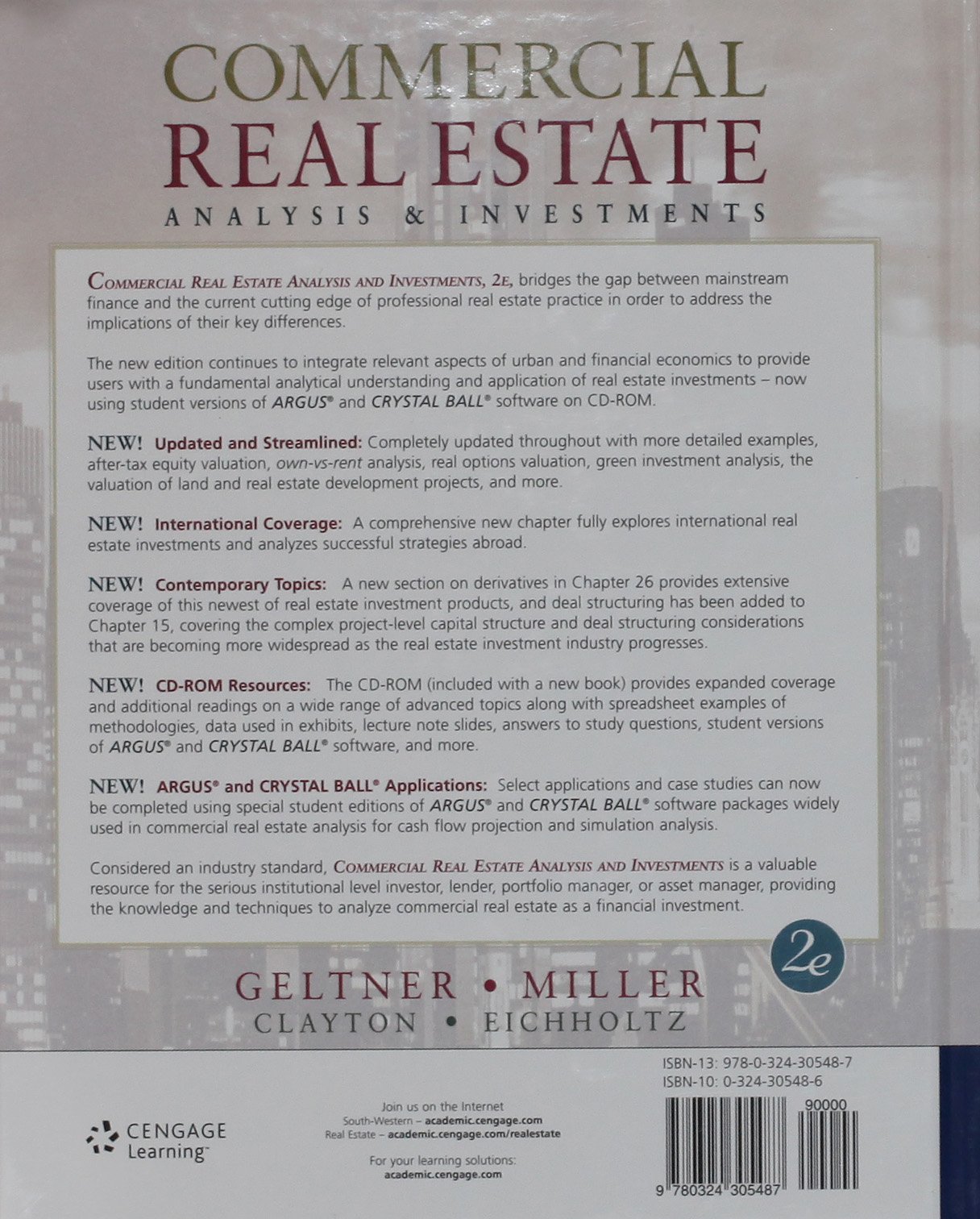Customer Services
Copyright © 2025 Desertcart Holdings Limited
Desert Online General Trading LLC
Dubai, United Arab Emirates



Full description not available
M**D
Great book, but you need to compliment it with others...
Overall, my favorite real estate book and the one I consult most often.At the risk of oversimplification, commercial real estate valuation can be broken apart into 3 activities:1) Figuring out how much cash a property will generate (e.g. pro-forma property financials)2) Figuring out how to discount that cash for time and risk (e.g. discount/cap rates)3) Figuring out how to slice this asset value into various claims against it (e.g. mortgages/CMBS, preferred equity structures, etc.)This book is amazing at #2 and only slightly less amazing at #3. In fact, I find its treatment of some materials (e.g. risk-neutral discounting as it relates to development properties) to be an excellent complement to and in some ways more informative than standard finance textbooks (e.g. Brealey / Myers). The authors do admit that their approach is slightly more academic than rules-of-thumb used in practice, but it never hurts to be more informed than your peers. If you're concerned about being too academic, also pick up the text by Peter Linneman Real Estate Finance & Investments: Risks and Opportunites; (2nd Edition), which covers similar material in a less academic, though still logically sound manner.I found, and many of you may find, the treatment of #1 (cash flow forecasting) somewhat limited. The book does deal in Part II with urban economics and in Part IV with property-level pro-formas, but these topics fly well above the depth available in other texts.I recommend that you compliment this text with something on market analysis...I own Real Estate Market Analysis: A Case Study Approach. A text like that gets you up the learning curve on key supply-and-demand metrics for each collateral type. There are also books on real estate operations (e.g. property management and loan servicing) that could compliment the Geltner text if you're into that level of detail.Side note: make sure to print out the appendices. They are a very useful supplement to the text.
M**.
lots of good information
Although I haven't finished reading this text, I think I can accurately comment on it. The information comes from an economics perspective. that's a good thing, if you have an economics background, which I do. I like the way this book reads. It offers a good deal of information about commercial real estate using both financial and urban economics. I don't believe this book is appropriate for an undergrad student. This book assumes you have a basic finance background and some understanding of urban economics. In short, if you have an econ degree or even a finance degree, I think you'll find this text very useful in helping you to understand what drives the commercial real estate market, how to predict where this market is going, how to analyze it, and how to valuate it.
M**Z
Good for someone starting out...
Great starter for someone new in commercial real estate, (broker or development) obviously it is a textbook so it has more depth than your daily read.
H**2
A normal textbook.
It's a text book. From a student perspective, I don't remember it being particularly pleasant to read, or unpleasant for that matter. Additionally it seemed well organized.
A**R
Fantastic service
great service everything was great and exceeding expectations
H**P
Five Stars
Thank you good book
P**S
Five Stars
Fast delivery. Book is very informative.
J**E
Got this for my MBA class but never really read it.
Got this for my real estate class while I'm doing my MBA. Never really used it but keeping it for reference.
Trustpilot
1 week ago
2 weeks ago
1 day ago
1 week ago